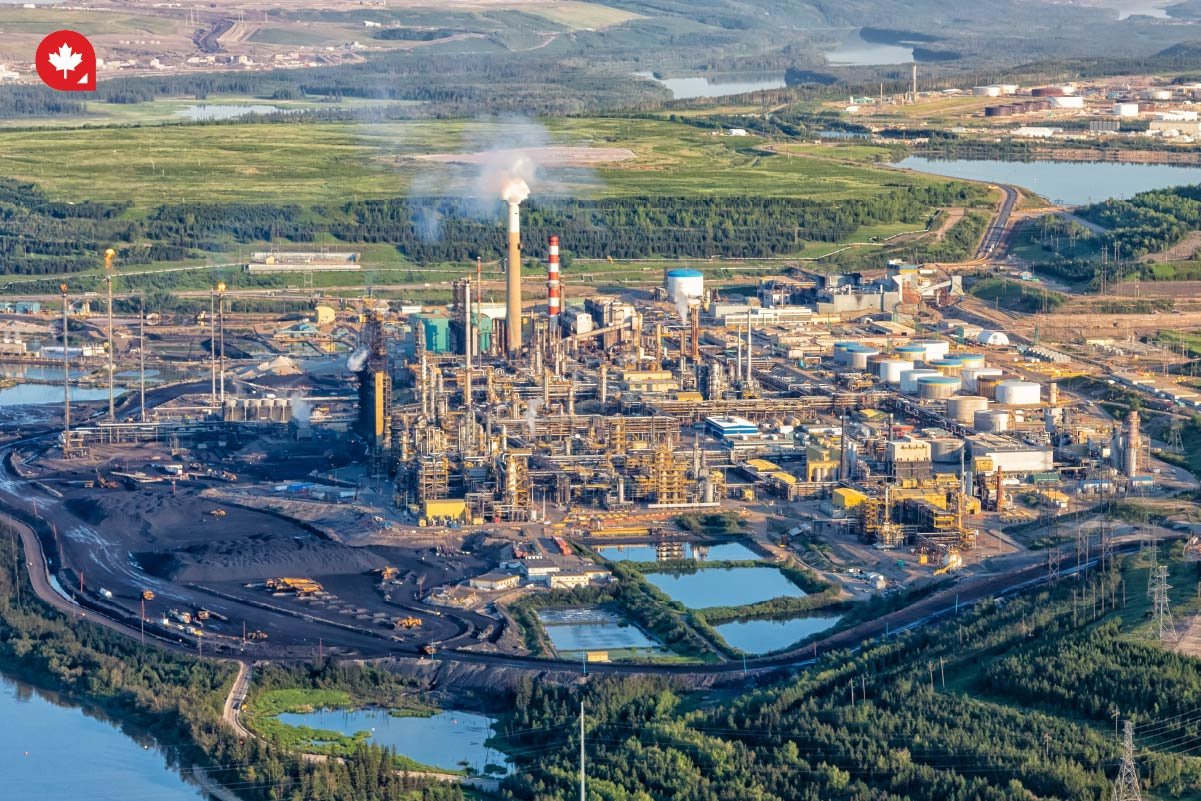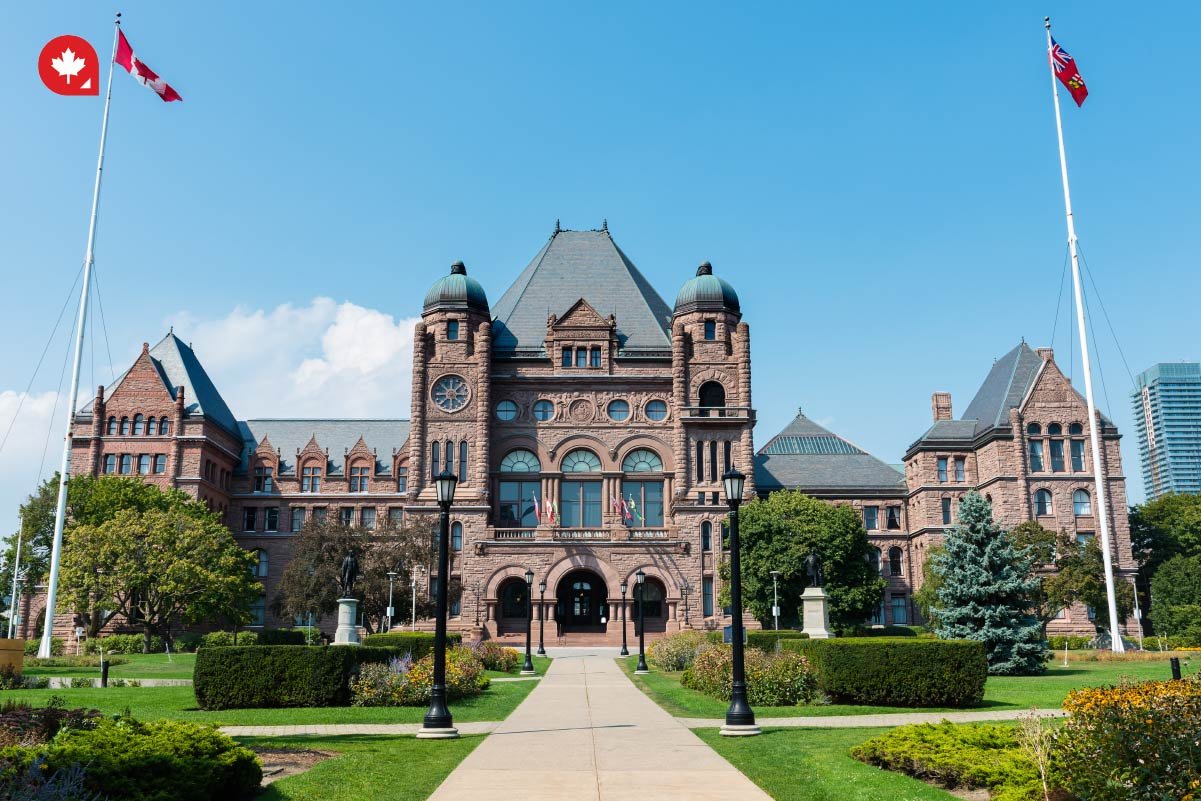The Canadian economy is highly developed and one of the largest in the world. It is a highly globalized economy and one of the world's largest trading nations. Built on diverse booming industries, the Canadian economy is famously stable and set to continue growing over the next few years.
If you plan to live and work in Canada, you must have an understanding of how Canada’s economy works, Canada’s major industries and the role the Canadian government plays in the regulation and upholding of the Canadian economy. This article will go into depth on the Canadian economy to give you a good start.
How Does the Canadian Economy Work?

The Canadian economy is market-oriented, closely integrated with the American economy but has developed unique economic institutions. A market-oriented system refers to an economy where most economic decision-making is done through voluntary transactions according to the laws of supply and demand.
This means companies, prices, and production are controlled naturally by the demand for goods and services rather than by the government. There may be some government intervention or central planning, but much of the economy is determined by companies and consumers.
As a result, the Canadian economy has several key defining factors. Here are some defining characteristics of the Canadian economy:
Natural Resources
A large part of Canada's economy depends on mining natural resources, such as gold, zinc, copper, and nickel, used extensively worldwide. Canada is also a large player in the oil business with many large oil companies.
International Trade
Canada's economy is highly dependent on international trade, with exports and imports of goods and services comprising about one-third of GDP. The country's three largest trading partners are the U.S., China, and the U.K.
Mixed Economy
The Canadian economic system generally combines private and public enterprise elements. Many aspects of public enterprise, most notably the development of an extensive social welfare system to redress social and economic inequities, were adopted after the end of World War II in 1945.
Diversified Economy
Canada's economy is highly diversified, with various industries contributing to its GDP. The country's three largest industries, measured by their contributions to GDP, are service, manufacturing, and natural resources.
Public Enterprise
Canada has developed unique economic institutions, and many aspects of public enterprise were adopted after the end of World War II in 1945. The country has an extensive social welfare system to redress social and economic inequities.
Trading Nation
Canada has always been a trading nation, and commerce remains the engine of economic growth. Canada exports billions of dollars worth of goods and services to the rest of the world. Canada has several major trading partners. According to the search results, the top trading partners of Canada are:
- United States
- China
- United Kingdom
- Japan, and
- Mexico
It's important to note that the US is Canada's most important trading partner, mainly because of the heavily integrated supply chains between Canada and the US. However, Canada also has strong trading ties with China and the European Union.
Public Mill Capacity
Canada has a mill capacity four times that of any other country, equal to the combined capacities of the United States, Britain, Norway, Sweden, and Finland.
A Strong Canada GDP
At the time of writing, the Gross Domestic Product in Canada (Canada GDP) is worth 2,790.57 billion CAD in 2023, according to official data from Trading Economics. According to CIC News, growth in real Canada GDP is projected to slow from 3.2% in 2022 to 1% in 2023 before strengthening to 1.3% in 2024.
Economic Freedom
According to the Heritage Economic Freedom Index, Canada's economic freedom score is 73.7 in the 2023 Index, making its economy the 16th freest. Its score is 2.9 points lower than last year.
Job Opportunities
One of the major reasons Canada is such a hot spot for international immigration is its vibrant job market. Due to the aging local population and the constant expansion of industry in Canada, there is an increasing demand for international workers to contribute to Canada’s economy.
The job market in Canada seems to be doing well, with employment gains exceeding expectations in recent months.
According to Canada’s Job Bank, the Canadian labor market by numbers shows that the unemployment rate is currently 5%, and the working population is 21,188,400. Despite adding 35,000 jobs in March and 41,400 jobs in April of 2023, Canada still has almost 1 million job vacancies nationwide. This means Canada is still one of the best places to find lucrative employment as an international immigrant.
Currently, the top in-demand jobs in Canada are as follows:
| Jobs That Are In Demand in Canada | |
|---|---|
| NOC 2021 Code | Occupation |
| 21321 | Industrial and manufacturing engineers |
| 21234 | Web developers and programmers |
| 72310 | Carpenters |
| 31301 | Registered nurses and registered psychiatric nurses |
| 41220 | Secondary school teachers |
| 41300 | Social Worker |
| 92013 | Supervisors, plastic and rubber products manufacturing |
| 21231 | Software engineers and designers |
| 12011 | Supervisors, finance and insurance office workers |
| 10011 | Human resources managers |
| 10022 | Advertising, marketing, and public relations managers |
| 60010 | Corporate sales managers |
| 62010 | Retail sales supervisors |
| 64300 | Maîtres d'hôtel and hosts/hostesses |
| 11100 | Financial auditors and accountants |
| 70010 | Construction managers |
| 72422 | Electrical Mechanics |
| 72200 | Electricians (except industrial and power systems) |
| 31120 | Pharmacists |
| 73300 | Transport truck drivers |
However, Canada is such a massive country, so each province has its list of in-demand occupations. This map shows the in-demand occupations in Canada’s provinces and territories.
Learn how to find a job in Canada.
To work in Canada, international immigrants need a Canadian work permit. This can be a very straightforward process. However, you must fulfill all the eligibility requirements and follow the application process to get your Canadian work permit.
What are the Major Industries in Canada?

While Canada has an incredibly diverse economy due to the wide variety of natural resources and the multicultural population, their economy is built upon four major industries, which are as follows:
Service Industry
The service industry is one of Canada's largest sectors, including healthcare, education, and real estate. Commercial banking is also a major industry in Canada.
Learn more about Canada’s service industry.
Manufacturing
Manufacturing is an important industry in Canada, with the automobile and aircraft industries being especially important. Other manufactured products include paper, high-technology equipment, machinery, food, clothing, and many other goods. Find out if you fit into Canada’s manufacturing industry.
Natural Resources
Canada is rich in natural resources, and many of its exports are natural resource commodities. The forestry, fishing, agriculture, mining, and energy industries are all important in Canada. Learn what natural resources in Canada you could build your career on here.
Mining
Mining has been one of the primary industries in Canada for centuries, and the country is a top producer of potash and uranium. Over 800 mines across Canada currently employ more than 363,000 workers.
Discover the power of Canada’s mining industry.
Learn more about Canada’s major industries.
The Role of the Government in Canada’s Economy

The Canadian government plays a significant role in the country's economy, although most businesses in Canada are privately owned. The Canadian government ensures that economic freedom is maintained with sufficient regulation to ensure the people of Canada are not exploited by the nation’s corporations. Here are some of the ways the Canadian government is involved in Canada’s economy:
Economic Response Plan
The federal government has implemented various programs to support businesses during the COVID-19 pandemic, including direct support, tax and customs duty payment deferrals, and liquidity support.
International Trade
Canada's economy is highly dependent on international trade, with exports and imports of goods and services comprising about one-third of GDP. The government helps negotiate and facilitate free trade with Canada’s trading partners.
Regulation and Subsidies
Although Canada has a generally free-market economy, the government still plays a large role in regulating and subsidizing many industries.
Monetary Policy
The Bank of Canada is responsible for implementing monetary policy in Canada to preserve the value of money by keeping inflation low, stable, and predictable. This allows Canadians to make spending and investment decisions more confidently, encourages longer-term investment in Canada's economy, and contributes to sustained job creation and greater productivity.
Learn more about the role the Canadian government plays in daily life in Canada here.
FAQs
How Does the Canadian Economy Affect Everyday Life for Immigrants in Canada?
Canada’s economy significantly impacts the everyday life of immigrants in Canada. While immigrants contribute to the economy and have access to job opportunities, they may face challenges such as rising housing prices and lower retirement savings.
What is the Cost of Living in Canada?
The cost of living in Canada can vary wildly depending on where you live. However, here’s a handy guide to help you determine your potential living costs:
Start Your Journey Into Canada's Economy

Now that you know the basics about Canada’s economy, it’s time to find your place in it. Canada’s economy and job market are constantly growing and changing to match the ever-evolving local industries.



